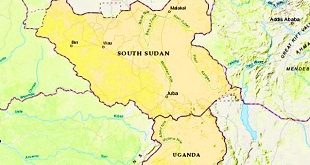
Kampala, Uganda | THE INDEPENDENT | Five diary cooperative societies in different districts have received mini milk processing equipment to support value addition, thanks to the National Agriculture Advisory Services (NAADS).
The beneficiaries are Balaholi Farmers Society in Kamuli, Neema Mixed Farm in Kamwengye, Dwanilo Diary and Livestock Farmers Society in Kiboga, Kigezi Diary and Producers Society in Kabale, and Kyankwazi Diary Farmers Cooperative.
The Diary Development Authority-DDA trained members of the five cooperatives on how to make yoghurt, ghee, and cheese at Mutanoga Farm Training Center in Kiruhura district to ensure they produce quality milk products.
Khadija Nakakande, the NAADS communications manager says that since 2014, there have been major improvements in the dairy sector, which has increased milk production from 2.5 billion liters to 2.9 billion liters annually. She however says that this has come with the lack of market-leading to price fluctuations in the market.
She revealed that NAADS secured Shillings 2.5 billion from the government this financial year which was used to purchase five mini dairy processing plants for the beneficiaries, which they hope to install by the end of this month.
According to Nakakande, the equipment will help the cooperatives to produce yogurt, cheese, and ghee that can meet international standards.
Ritah Basemera, the manager of Balaholi Farmers Society in Kamuli district says that they collect 500liters of milk daily at between Shillings 800 and 1200. She says that adding value to the milk will be an advantage to the farmers since price fluctuations have been affecting their business.
According to Basemera, although the price of milk keeps fluctuating, the products have a fixed price noting that a packet of yogurt costs 2500 much higher than a liter of milk, and a kilogram of ghee costs Shillings 20,000, which is more than 100% higher compared to the price of milk.
Patrick Atengi, the director of Kigezi Diary and Producers Society in Kabale, says that the training has equipped them with knowledge of making good products that will increase their income and allow them to export products to the international market.
He says the market has been a challenge noting that they have had losses from the surplus milk due to poor storage.
Emmanuel Tayebwa, the director of Mutanonga Farm Training Center, says that adding value to milk will increase the consumption of milk, which stands at 69% in Uganda compared to 81% in Kenya.
Wilson Kajwengye, the Nyabushozi County Member of Parliament wants the government to help all cooperatives that are ready to add value to their agricultural products. He tasked NAADs to shift from giving out agricultural products to value addition, which will sustain agro-processing and transform the agriculture economy into an industrial one.
Emmanuel Kishe, a consultant on dairy farming appreciated the initiative noting the amount of milk that goes to waste in Uganda is enough to finance the entire budget of a district local government once sold on the international market.
Since Kenya banned the importation of Uganda’s milk, the dairy sector has struggled to find another market, which has affected the price of milk locally. Currently, a liter of milk in Western Uganda costs as low as Shillings 500 shillings at the farm gate price and Shillings 800 at retail.
*****
URN
 The Independent Uganda: You get the Truth we Pay the Price
The Independent Uganda: You get the Truth we Pay the Price



